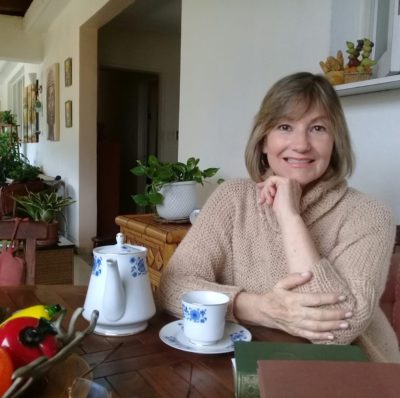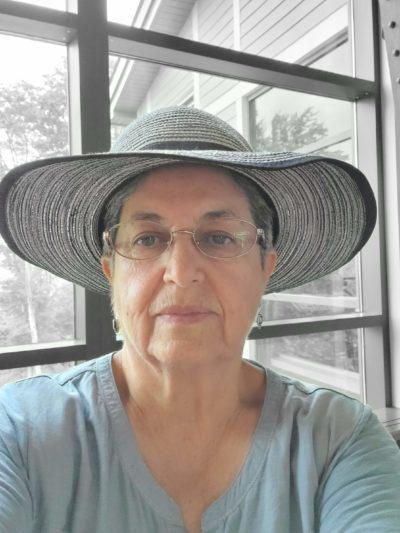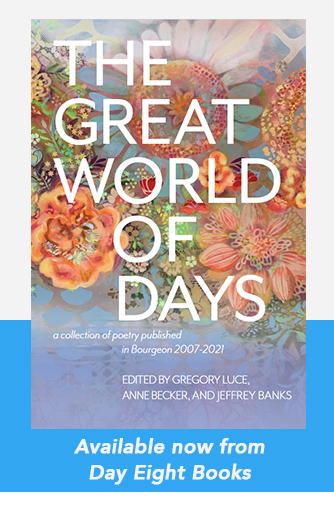Bourgeon continues its celebration of Women in Translation Month.
Rationing
In the line a woman shouts
there’s flour
I think of warm biscuits
Soon I hear
only rice is left
but my happiness is futile
They’re bringing sugar
Oh! miracle
I will wait
I hear words ricochet
the sugar is gone
The line begins to disperse
I persist
eventually they will bring something
finally a hand offers me a chicken
I leave with my treasure
In a bookstore nearby
a friend has the nerve to read me a long poem
the poet doesn’t know why I flee
such an ordinary goodbye fills me with guilt
You must live in a country with hunger
to understand how a poem’s symmetry
can be broken
by the slow drip of guts and blood
Translated by Yvette Neisser. Originally published in The Brooklyn Rail’s InTranslation series.
Racionamiento
En la fila una mujer grita
llegó harina
Pienso en panecillos horneados
Poco después oigo
solo queda arroz
pero mi alegría es vana
Van a sacar azúcar
¡oh! Milagro
esperaré
escucho palabras en rebote
se acabó la azúcar
La cola comienza a deshacerse
Persisto
algo van a sacar más tarde
al final una mano me entrega un pollo
salgo de allí con mi tesoro
En una librería cercana
un amigo se atreve a leerme un poema largo
el poeta no sabe por qué me despido
lo prosaico de mi huida me hace sentir culpable
Hay que vivir en un país con hambre
para entender cómo se puede romper
la simetría de un poema
por un ligero goteo de vísceras y sangre
Lark Please Look at Me
I know Newton’s Laws produce birdsongs
hence the tenacity of the lark
how it carries its song through the air
holding and releasing its river voice
the hanging feeder is replete with fruit
and the cage set in gold
I can’t understand what impedes her
outside the birdseed now ice
other birds come to peck the fruit
she crashes into the snow
twig by twig she builds a nest
though I try to sing like the lark
I am a woman imprisoned
unable to modulate
without the vibrato of another throat
I find myself at the throne of death
lark please look at me
and death shall have no dominion
because a lark can revoke the sentence
if a dying person meets its eye
From the book Del diario de la Señora Mao (From the Diary of Madame Mao), this poem is written in the voice of Jiang Qing, widow of Mao Zedong, at the end of her life.
Translated by Yvette Neisser and Patricia Bejarano Fisher.
Que me vea una alondra
Sé que las Leyes de Newton producen cantos
de allí la tenacidad de la alondra
la forma como sostiene su canto en el aire
conteniendo y soltando su voz de arroyo
el comedero colgante está provisto de fruta
y la jaula engastada en oro
pero no entiendo el impedimento del pájaro
afuera el alpiste de hielo
otras aves se acercan a picotear la fruta
ella se estrella en la nieve
ramita a ramita construye un nido
aunque imite el cantar de la alondra
soy una mujer cautiva
para modular
necesito el vibrato de otra garganta
me hallo en el trono de la muerte
necesito que me vea una alondra
y la muerte perderá su dominio
porque una alondra puede revocar la sentencia
si un moribundo encuentra sus ojos

Maria Teresa Ogliastri was born in Los Teques, Venezuela, and lives in Caracas. She is the author of six collections of poems, including Alambique (“Distiller,” Editorial El Taller Blanco, 2019) and Polo Sur (2008), which was published in English as South Pole/Polo Sur (Settlement House, 2011). Ogliastri has been featured at poetry festivals in Latin America and the US, and her poems appear in several anthologies of contemporary Venezuelan poetry. She is currently a professor in the School of Philosophy at the Universidad Central de Venezuela.

Patricia Bejarano Fisher, originally from Colombia, is a multidisciplinary language professional who has worked as a translator, teacher, and developer of learning materials. She is co-translator of Maria Teresa Ogliastri’s South Pole/Polo Sur (Settlement House, 2011) and From the Diary of Madame Mao (unpublished). Her translations have appeared in literary journals, as well as in Laura Shovan’s The Last Fifth Grade of Emerson Elementary (Random House Children’s Books, 2016), and in Danuta E. Kosk-Kosicka (Ed.) Szklana góra/Glass Mountain (2017).

Yvette Neisser is the author of Grip, winner of the 2011 Gival Press Poetry Award. Her translations from Spanish include South Pole by María Teresa Ogliastri and Difficult Beauty: Selected Poems by Luis Alberto Ambroggio. Her poems, translations, essays, and reviews have appeared in such publications as Foreign Policy in Focus, Virginia Quarterly Review, and the Bloomsbury Anthology of Contemporary Jewish American Poetry. She is a founding Board Member of the DC-Area Literary Translators Network (DC-ALT) and has taught writing at George Washington University and The Writer’s Center. By day, she is a writer for an international development firm.
Image by RASECZENITRAM [CC BY-SA 3.0 (https://creativecommons.org/licenses/by-sa/3.0)]


